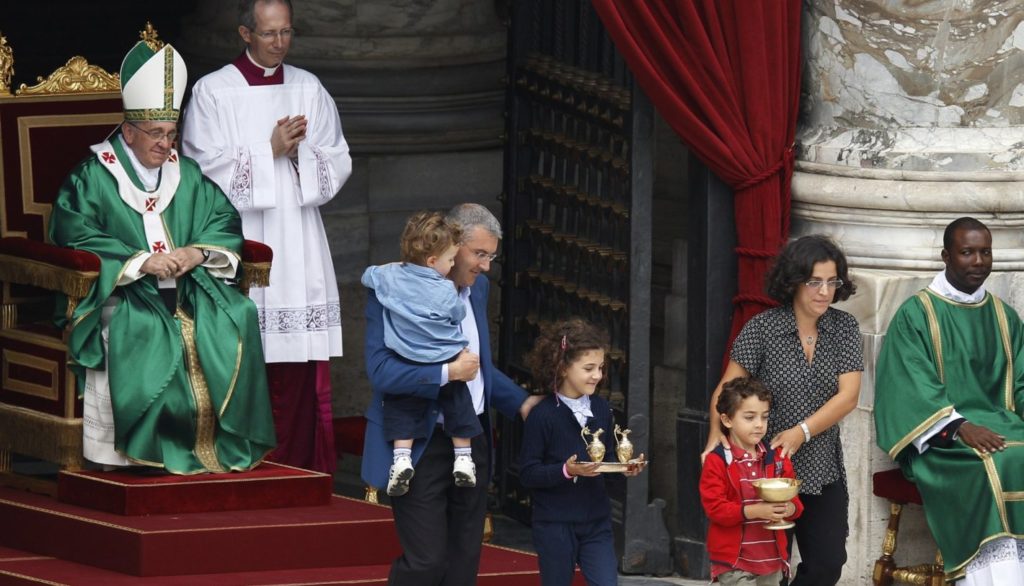Pope Francis had promised it a short time ago and so the Rite of Institution of the Lay Ministry of Catechist has arrived, which will come into force as of January 1, 2022. The Congregation for Divine Worship and the Discipline of the Sacraments, in fact, has recently issued the Decree with which it published the editio typica of the above-mentioned rite in Latin, as announced in the Apostolic Letter in the form of a motu proprio. Antiquum ministerium on May 10.
The approach with which the Pontiff decided to reach this institution is stated in n. 5 of the motu proprio: "fidelity to the past and responsibility for the present", with the aim of reviving the Church's mission in the world, thus being able to count on credible, active and available witnesses in the life of the community, who are properly trained and carry out this task in a "stable" way.
Profile to be defined
Hence the need to establish this ministry through a rite, as is the case with lectors and acolytes. Obviously, it will be up to each episcopal conference, also according to its own pastoral needs, to establish and regulate its exercise "in terms of duration, content and modalities," as explained by the Prefect of Divine Worship, Bishop Arthur Roche.
In the letter sent to the presidents of bishops' conferences throughout the world, it is also specified that, in order to avoid misunderstandings, "it is necessary to keep in mind that the term 'catechist' indicates different realities in relation to the ecclesial context in which the term is used". Therefore, it is not indicated that those who have already been admitted to the diaconate and presbyterate, religious in general or those who teach Catholic religion in schools should be instituted as catechists.
Strong vocational value
Since this ministry has "a strong vocational value that requires due discernment on the part of the Bishop", it is not even convenient that all those who limit themselves to accompanying the initiation of children, youth and adults receive it; it is sufficient for them - and it is recommended - to receive "at the beginning of each catechetical year, a public ecclesial mandate entrusting them with this indispensable function".
On the contrary, those who already "carry out the service of the message in a more specific way" and normally "remain in the community as witnesses to the faith, teachers and 'mystagogues', companions and pedagogues available to foster, as much as possible, the life of the faithful, so that they may be conformed to the baptism received", should receive the specific mandate of catechist.
For this reason, it is prescribed that they collaborate with the ordained ministers in the various forms of apostolate, "carrying out, under the guidance of the pastors, multiple functions", such as, for example: guiding community prayer; assisting the sick; guiding funeral celebrations; formation and guidance of other catechists; coordination of pastoral initiatives; human promotion according to the social doctrine of the Church; helping the poor; fostering relations between the community and the ordained ministers.
Therefore, it is up to the episcopal conferences to clarify well, according to their own territory and their own pastoral needs, the more specific profile of the catechist, thinking also about the formation courses and the preparation of the communities to understand its meaning.
The specific role of the bishop
A specific role is played by the diocesan bishop, who is called to consider the needs of the community and to discern the abilities of the candidates, "men and women who have received the sacraments of Christian initiation and have freely presented a written and signed request to the diocesan bishop". It will be he, or a priest delegated by him, who will confer the ministry of catechist, during a Mass or the celebration of the Word of God.
The rite foresees, "after the liturgy of the Word, an exhortation on the role of catechists; an invitation to prayer; a text of blessing and the handing over of the crucifix".








